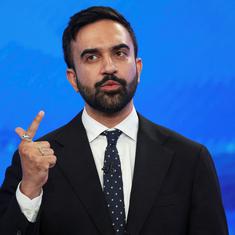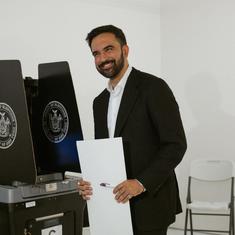Although the spokesperson for the Foreign Office, which is far more abreast of the country’s permanent military-led establishment, has issued a statement that a decision had not been taken in this regard, there is news of Pakistan Navy and Air Force already operating in Yemen. Whether there has been a secret decision or no decision, it has compounded the confusion in the country, particularly among those who believe the deadly attack on a school in Peshawar on December 16, 2014, had taught Pakistan a lesson in staying away from Saudi Arabia and its Wahabi version of Islam. It is a fact that since the attack, Saudi Arabia had come under some criticism, something which had never happened before. A while ago, there were print articles and discussions on electronic media criticising the Saudi royalty for coming to Pakistan to kill houbara bustards.
While the criticism was new, did it really indicate a shift in Pakistan’s policy towards Riyadh? Where finally is the centre of policymaking regarding Saudi Arabia – the prime minister’s office or the army’s General Headquarters?
Sharif has attracted a lot of attention with his expression of support for the Saudi operation in Yemen. Many of his critics believe he is but too happy to commit Islamabad to Saudi Arabia’s security goals since he is indebted to the Saudis for bailing him out and keeping him through the worst of times after his unceremonious sacking in October 1999. Some people in Saudi Arabia I spoke to a year ago even suggested that Saudi intelligence had played a role in the 2013 elections, which brought Sharif back to power.
That may be, but the Yemen decision has traces of permanency, of being anchored in Pakistan’s security establishment more than the prime minister’s office. It seems odd that army chief Raheel Sharif, who is otherwise hands-on on security issues and all critical policies, suddenly opted to toe the political government’s line on this matter and volunteered to become subservient to the will of the elected prime minister. Given this, it is not surprising that there is limited criticism of the military as well. A photograph circulated on social media has Pakistan Army soldiers marching and a caption that says: “Army-for-Rent – special concession for Arabs particularly Saudi Arabia. Those unsure of the army’s capabilities must seek guidance from Americans regarding war in Afghanistan.”
All-weather partnership
The army has a long history of serving Saudi Arabia and even tailoring its internal politics to suit the whims of the Saudis. Reportedly, some of the officers in the army contingents sent by Pakistan in the early 1960s under General Ayub Khan were returned as they were Ahmedis and the Saudis did not consider them Muslims. This was much before Islamabad’s own decision to declare Ahmedis non-Muslims in the 1970s.
Over the years, while the Kingdom has depended on security assistance from Pakistan, several myths about the ties have taken hold. The Pakistanis like to believe that their armed forces played a key role in quelling the armed rebellion inside the Kaaba in 1979, but it was the French who played a greater part. Another common myth is that bilateral relations strengthened under a more religiously conservative army chief, General Ziaul Haq. But it is in fact the security ties that have been the most stable component of the relation despite the ill-treatment of Pakistanis in Saudi Arabia.
In 1990/91, when Sharif was serving his first stint as prime minister, he encountered friction with army chief Mirza Aslam Baig over supporting US operations against Iraq. Nevertheless, the military agreed to send a contingent for Saudi Arabia’s security. Years later, after the nuclear tests in 1998, the military set aside its protectiveness about the country’s nuclear programme and allowed Sharif to take the Saudi crown prince on a tour of the Kahuta Laboratories, which is responsible for uranium enrichment.
The relations did not change even under General Pervez Musharraf, believed to be more liberal than his predecessors, evidencing Riyadh’s generally stable ties with the military. It is almost a tradition for Pakistan to appoint retired generals or naval commanders as ambassadors to the country.
Credit for such excellent ties party goes to the steady flow of money. Being included in UN missions abroad or dispatched to Saudi Arabia is part of Pakistan’s Military Inc. The country is adept at providing security as a service, be it for the Saudis or the Americans. But there are institutional-ideological links as well, dating back to the cooperative relationship developed in the 1980s during the Afghan war against the Soviet Union. Moreover, critical segments of the military and its intelligence agencies are psychologically tied with the Saudi Kingdom since it is a symbol of Islamic identity. There is no indication that the General Headquarters will re-evaluate this linkage. And it does not even have to because in Pakistan’s current “hybrid military rule” it is the civilians that take all the blame while the army enjoys all the benefits.










